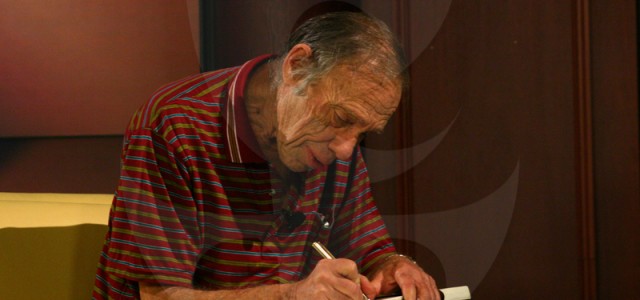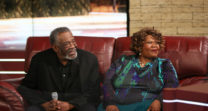Robert Sheckley

Robert Sheckley (July 16, 1928 – December 9, 2005) was a Hugo- and Nebula-nominated American author. First published in the science fiction magazines of the 1950s, his numerous quick-witted stories and novels were famously unpredictable, absurdist and broadly comical.
Sheckley was named Author Emeritus by the Science Fiction and Fantasy Writers of America in 2001.
Sheckley was a prolific and versatile writer. His works include not only original short stories and novels, but also TV series episodes (Captain Video and His Video Rangers), novelizations of works by others (Babylon 5: A Call to Arms, after the film), stories in shared universes such as Heroes in Hell, and collaborations with other writers. He was best known for his several hundreds of short stories, which he published in book form as well as individually. Typical Sheckley stories include “Bad Medicine” (in which a man is mistakenly treated by a psychotherapy machine intended for Martians), “Protection” (whose protagonist is warned of deadly danger unless he avoids the common activity of “lesnerizing”, a word whose meaning is not explained), and “The Accountant” (in which a family of wizards learns that their son has been taken from them by a more sinister trade—accountancy). In many stories Sheckley speculates about alternative (and usually sinister) social orders, of which a good example is the story “A Ticket to Tranai” (that tells of a sort of Utopia designed for human nature as it actually is, which turns out to have terrible drawbacks).
One of the most famous of Sheckley’s stories was the AAA Ace Series involving a series of stories involving two partners in the far future encountering various unusual problems.
In the 1990s Sheckley wrote a series of three mystery novels featuring detective Hob Draconian, as well as novels set in the worlds of Star Trek: Deep Space Nine and Alien. Before his death Sheckley had been commissioned to write an original novel based upon the TV series The Prisoner for Powys Media, but died before completing the manuscript.
His novel Dimension of Miracles is often cited as an influence on Douglas Adams’s The Hitchhiker’s Guide to the Galaxy, although in an interview for Neil Gaiman’s book Don’t Panic: The Official Hitchhiker’s Guide to the Galaxy Companion, Adams said he had not read it until after writing the Guide











